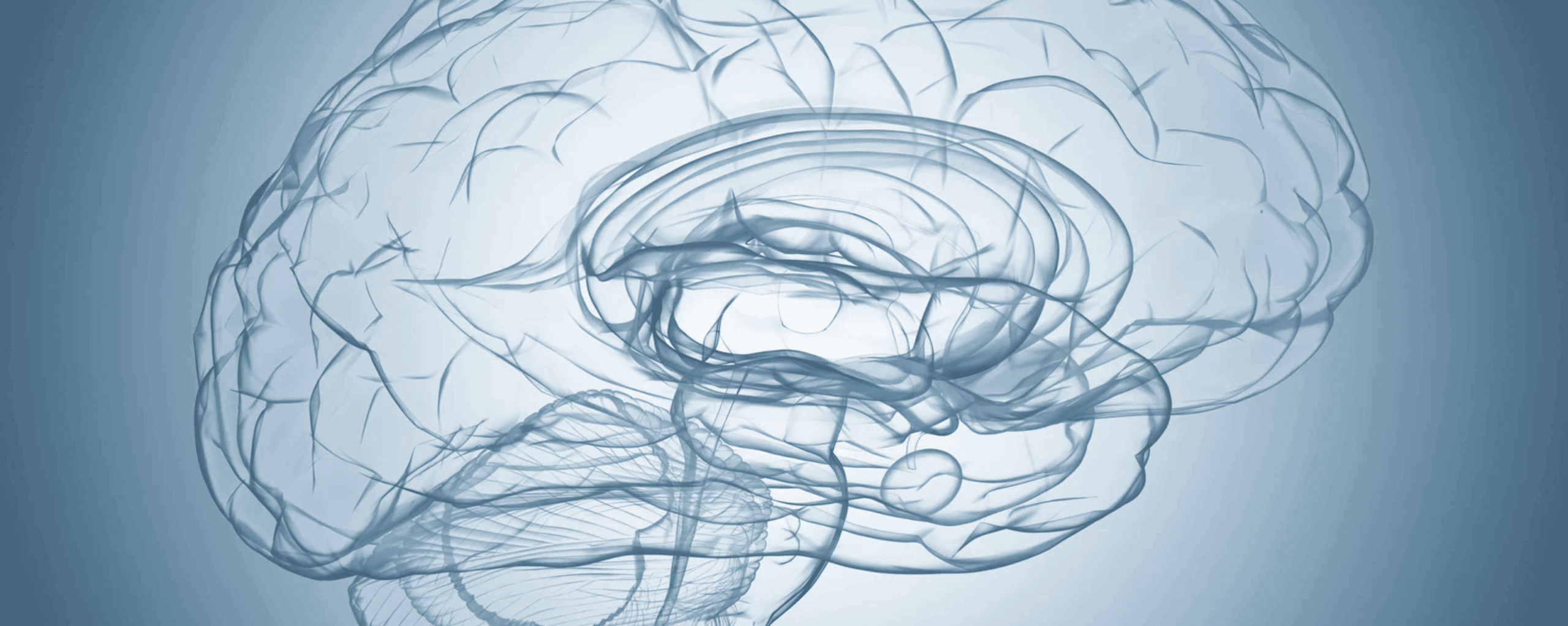Meth psychosis can be a terrifying outcome of using one of the most dangerous and addictive drugs of abuse: crystal meth. The drug is a potent stimulant that affects the central nervous system. It belongs to the amphetamine class of drugs and is like amphetamine but has a more potent and longer-lasting effect on the brain.
Methamphetamine made in laboratories by illegal methods uses various dangerous chemicals and processes. It often comes in the form of a white crystalline powder that people snort, smoke, inject, or take by mouth.
Common street names for meth include:
- Meth
- Crystal
- Ice
- Speed
- Crank
Why is Meth Dangerous?
All amphetamine-class stimulants can provoke the condition called amphetamine psychosis, but no illicit drug does it as fast as meth. Methamphetamine increases the release and blocks the reuptake of certain neurotransmitters in the brain. These include dopamine, norepinephrine, and serotonin. This leads to a surge in these chemicals, producing a powerful and prolonged stimulant effect. The result is an intense rush of euphoria, increased energy, enhanced focus, and a heightened sense of well-being.
The list of detriments far outweighs the desired effects. Short-term effects of meth use include:
- Increased heart rate and blood pressure
- Decreased appetite
- Insomnia
- Irritability
- Anxiety
- Paranoia
Long-term methamphetamine abuse can cause severe damage to the brain, heart, liver, and other organs. This can lead to health issues like:
- Cardiovascular problems
- Dental issues also called “meth mouth”
- Skin sores
- Weakened immune system
- Psychosis
- Cognitive impairments
Methamphetamine is very addictive due to its powerful effects on the brain’s reward system. Prolonged use results in tolerance, where people take higher doses to achieve the desired effects, and finally, methamphetamine dependence, leading to cravings and withdrawal symptoms when attempting to quit.
Prolonged use of meth exhausts the nerves responsible for the sense of pleasure. These nerves make less and less dopamine, which is also required to suppress pain. A person in the grip of meth addiction loses the ability to feel pleasure of any sort. They’re also unable to ignore even the slightest painful stimuli.
What is Meth Psychosis?
In a general sense, psychosis is a state in which a person no longer has any contact with reality.
Methamphetamine psychosis is a condition that can occur from prolonged meth abuse. It is a form of substance-induced psychosis characterized by the presence of psychotic symptoms, including hallucinations, delusions, paranoia, and disorganized thinking or speech.
Methamphetamine affects the brain by increasing the release of certain neurotransmitters, mainly dopamine. At the same time, meth simultaneously prevents the brain from removing the dopamine. This leads to an overstimulation of the brain’s pleasure reward system. This causes an imbalance in neurotransmitter levels.
Long-term methamphetamine addiction can cause significant alterations in brain chemistry and functioning, which can result in psychotic symptoms.

Some may confuse meth psychosis with schizophrenia. Psychosis and schizophrenia can look alike to a non-expert eye, as the symptoms are similar. A certified addiction and mental health treatment provider can help with the diagnosis process to ensure an accurate diagnosis and treatment plan.
Meth psychosis can manifest in different ways. The severity and duration of symptoms vary from person to person. Some common symptoms of meth psychosis include:
- Hallucinations: People may experience visual or auditory hallucinations, seeing or hearing things that are not present. They may perceive objects, people, or sounds that are not real.
- Delusions: Individuals may hold false and fixed beliefs that are not based on reality. These delusions can lead to heightened suspicion, fear, and mistrust.
- Paranoia: Meth psychosis often involves intense paranoia. Individuals may become suspicious of others, even their close friends and family members.
- Disorganized thinking and speech: Meth-induced psychosis can cause disorganized thinking patterns and difficulties in organizing thoughts. This can lead to fragmented or incoherent speech, making communicating difficult.
- Agitation and aggression: Meth psychosis can result in heightened agitation, restlessness, irritability, and even aggressive behavior. Individuals may become provoked without an obvious trigger. They may also exhibit violent tendencies.
Meth psychosis is a temporary condition. How long it lasts in each person can vary. In some cases, the symptoms may subside after methamphetamine use stops. In cases of chronic abuse, meth psychosis can persist for weeks or even months. One study found that 60% of the 258 meth users who participated reported their psychotic symptoms went away within one month of sobriety. 30% had symptoms that lasted between one and six months. 10% of meth users studied saw meth psychosis symptoms that lasted for more than six months.
What Causes Meth Psychosis?
Meth psychosis, or methamphetamine-induced psychosis, occurs due to the abuse and chronic use of methamphetamine. The exact cause of meth psychosis is still unknown, but several factors contribute to its occurrence:
- Dopamine Imbalance: Methamphetamine increases the release and blocks the reuptake of dopamine, a neurotransmitter associated with reward and pleasure. This leads to an excessive accumulation of dopamine in the brain, disrupting normal neurotransmitter balance. The resulting imbalance can trigger psychotic symptoms.
- Neurotoxicity: Methamphetamine is neurotoxic and can cause damage to brain cells in areas with lots of dopamine receptors. The neurotoxic effects of meth can impair the functioning of brain regions involved in perception, cognition, and emotion regulation, contributing to the development of psychosis.
- Genetic Vulnerability: Some individuals may be genetically predisposed to a higher risk of developing meth psychosis. Genetic factors can influence how the brain responds to methamphetamine and its effects on neurotransmitter systems, making certain individuals more susceptible to psychosis.
- Pre-existing Mental Health Conditions: People with pre-existing mental health conditions, such as schizophrenia or bipolar disorder, may be more vulnerable to methamphetamine-induced psychosis. Meth use can exacerbate underlying psychiatric conditions or trigger the onset of psychosis in individuals who are already predisposed to it.
- Sleep Deprivation: Methamphetamine use often leads to prolonged periods of wakefulness due to its stimulating effects. Sleep deprivation and disruptions in sleep patterns can contribute to the development of psychotic symptoms. Lack of sleep can further exacerbate the impact of methamphetamine on brain function, increasing the risk of psychosis.
- Individual Sensitivity: Different individuals may have varying sensitivities to the effects of methamphetamine. Some people may experience psychosis even with lower doses or shorter durations of meth use, while others may not develop psychosis despite prolonged use. Factors such as someone’s general health, metabolism, and individual brain chemistry can influence susceptibility to meth psychosis.
Who is at Risk for Meth Psychosis?
Anyone can fall victim to meth abuse and methamphetamine dependence. According to data from the Centers for Disease Control and Prevention, around 1.6 million adults in the United States used meth between 2015 and 2018. Further research from the National Institute on Drug Abuse found that women are more likely to develop an addiction to stimulants.
The individuals researched in the study reported that they used stimulants as an energy boost to cope with things like work, school, childcare, and other responsibilities. The study also found that many of the women who abused stimulants like meth also suffered from co-occurring depression. Mental health issues like bipolar disorder or schizophrenia can also increase someone’s risk of developing meth psychosis.
The risk of developing meth psychosis increases the longer someone uses meth. As the body builds a tolerance, someone may find they need more and more of the drug to feel its desired effects. This opens the door for serious health issues like meth psychosis and even death by overdose.
Genetics or a family history of meth abuse or meth psychosis also raises someone’s risk of developing symptoms.
Signs and Symptoms of Meth Abuse
Methamphetamine abuse causes both physical and psychological symptoms. It’s important to note that these symptoms may vary from person to person and can depend on the dosage, frequency of use, and individual tolerance. Here are some common signs and symptoms of methamphetamine abuse:
Physical signs and symptoms of meth abuse:
- Increased energy levels and hyperactivity
- Dilated pupils
- Excessive sweating
- Rapid breathing
- Increased heart rate and blood pressure
- Decreased appetite and weight loss
- Dental problems such as tooth decay or “meth mouth”
- Skin sores or infections (from picking at the skin)
- Tremors or shaky movements
- Poor coordination
Psychological signs and symptoms of meth abuse:
- Euphoria and intense pleasure
- Increased talkativeness and rapid speech
- Restlessness and agitation
- Irritability and mood swings
- Anxiety and paranoia
- Seeing a visual hallucination
- Insomnia or disrupted sleep patterns
- Poor concentration and memory problems
- Impulsive or risky behavior
- Aggression or violent outbursts
- Long-term methamphetamine abuse can lead to more severe symptoms, including:
- Severe weight loss and malnutrition
- Chronic fatigue and weakness
- Dental and oral health problems
- Respiratory issues
- Cardiovascular problems
- Liver and kidney damage
- Psychosis and persistent hallucinations
- Cognitive impairments, including memory loss and difficulty with decision-making
- Mood disorders such as depression and anxiety
- Increased risk of infectious diseases (due to needle sharing or unsafe sexual practices
How To Help Someone with Meth Psychosis
Helping someone with meth psychosis or who suffers from meth abuse is vital for their recovery. People experiencing psychotic symptoms are not able to think in a clear way. They are unable to make decisions that make a positive impact on their life due to addiction to crystal methamphetamine. When someone you know is experiencing meth psychosis, there are a few things you can do to help:
- Remain calm – someone experiencing delusions or psychosis may have small things set them off. Any kind of anger or negative reaction to their issue could cause the symptoms to worsen.
- Don’t yell – speak in calm, clear tones.
- Try to find a quiet place to bring them – less stimulation can help with a psychotic episode.
- Don’t say the hallucinations are not real – for the person experiencing the delusions, they are very real.
- Call emergency services if someone exhibits violence or is putting themselves in danger.
Finding Treatment for Crystal Meth Abuse
No one needs to go through life struggling with a meth addiction. There are treatment programs available to help treat meth-induced psychosis and get someone back on the right track. Vogue Recovery Center offers a full continuum of care for those who abuse meth and want to stop. Our addiction treatments use the latest evidence-based and holistic practices for recovery.
Our levels of care offer a personalized approach to meth addiction recovery. This includes an individualized treatment plan created by a substance abuse and behavioral health professional.
Our team can manage meth withdrawal symptoms during detox and help someone overcome the factors and triggers that led to abuse in the first place.
Our levels of care to treat meth psychosis and meth addiction include:
- Medical Detox
- Residential Treatment
- Partial Hospitalization Program (PHP)
- Intensive Outpatient Program (IOP)
- Outpatient Program
Each of these tracks uses proven therapies and addiction treatments to help someone turn their life around. Relapse prevention is an important aspect of helping someone with a chronic methamphetamine abuse problem. A study from the National Library of Medicine found that 61% of meth users involved in the sample relapsed within one year of leaving addiction rehab centers.
Vogue Recovery Center uses dual diagnosis treatments like Cognitive Behavioral Therapy (CBT) and Dialectical Behavioral Therapy (DBT) to end meth addiction. CBT is a goal-oriented therapy that focuses on identifying and changing negative thought patterns and behaviors. CBT can help individuals recognize the triggers, thoughts, and beliefs that contribute to drug use. It aims to develop healthier coping strategies and skills to manage cravings, stress, and high-risk situations.
DBT is a form of therapy that combines elements of CBT with mindfulness-based techniques. It is helpful for individuals who struggle with:
- Emotional regulation
- Impulsive behavior
- Self-destructive tendencies
- Change unhelpful, or negative patterns of thinking
DBT aims to enhance a person’s ability to cope with stress, regulate emotions, and improve interpersonal skills.
Vogue Recovery Center understands that drugs and alcohol carry the potential to ruin someone’s life. The negative symptoms which come with chronic meth abuse are dangerous and can cause hallucinations and delusions in those who abuse the illicit drug. Treatment programs for methamphetamine psychosis are safe and effective. The clinical team at Vogue Recovery Center has ample experience with treating co-occurring disorders like meth psychosis and schizophrenia. Clients can focus their full attention on recovery without worry. Contact Vogue Recovery Center today to verify your insurance or schedule a consultation with one of our rehab centers.


Evan Gove

Latest posts by Evan Gove (see all)
- Dangers of Mixing Prozac and Alcohol - September 10, 2024
- Is Prednisone Addictive? - September 9, 2024













